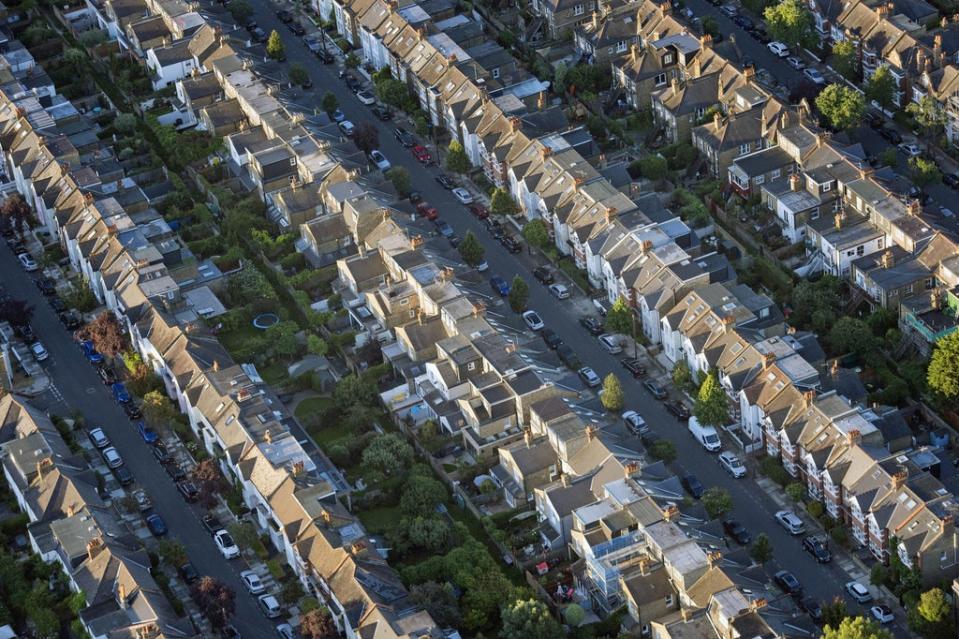Cash in on the chance to overpay your mortgage

By now, you don’t need us to tell you that our relationship with money has changed fundamentally over the last two remarkable years.
With around half the population having come out of the first phases of the pandemic financial stronger than when we went in, we’ve smashed our credit card balances, clawed back our overdrafts and discovered the reassurance of emergency savings.
Some of us, particularly the youngest, have even taken a bite out of debt we sometimes don’t even think of as debt – the mortgage.
UK homeowners have overpaid £7bn on their mortgages in the past six months, with borrowers aged 25-39 most likely to make extra payments.
“It’s encouraging to see the nation’s wealth begin to recover again after a long period of uncertainty and anxiety for so many,” said Emma Walker, chief marketing officer at protection specialists, LifeSearch.
“While the record levels of household savings seen in 2020 have fallen as spending has recovered, we’ve found that many are also choosing to overpay on their mortgage and repay debts.”
But while overpaying your mortgage can cut the term of your home loan and how much interest you’ll pay in the long run, research by Lifesearch revealed that just 7 per cent of homeowners made additional payments in the past six months.
It makes sense, especially with interest rates on home loans so low right now, that many people have decided the money is better used elsewhere.
But as sure as the sun rises, so will interest rates. Eventually. And small overpayments now could make a massive difference later.
The benefit of overpayments
With around 45 per cent of the population working at least some of the time from home and others’ spending restricted by lack of holiday and leisure opportunities, figures from the Office of National Statistics found that consumers have been saving around £180 per person every month as a result.
For homeowners who use just half of this extra cash to make mortgage overpayments of £90 towards a £200,000 mortgage, Halifax calculates that it would shave three years off the length of the loan – saving more than £16,800 across the term.
Overpayments don’t even need to start early in the mortgage to make a noticeable impact on the total repaid and term, either.
Paying an extra £90 each month from the mortgage’s tenth anniversary could still save £5,300 in interest and cut 18 months off the term.
For those fortunate enough to have squirrelled away any extra cash during lockdown, using some or all of that lump sum to pay down a mortgage can make a big difference.
Even sums paid well into the mortgage term will save more interest than they would earn in a savings account.
For example, a £5,000 lump sum paid off a £100,000 loan with 15 years remaining could save the homeowners £3,866 in interest and cut their mortgage term by 13 months.
“Whether it’s a lump sum or a bit extra paid each month, overpayments could cut the cost of buying your home by tens of thousands of pounds and see you mortgage-free months, if not years, early,” said Russell Galley, managing director at Halifax.
“Not being able to take a holiday, not having the same travel expenses, or just not going out could mean some people have saved a sizable amount.
“Some will want to splash out with a return to the shops or on that holiday, but for others lockdown may provide a once-in-a-lifetime opportunity to significantly reduce their mortgage.”
Do your sums
Bear in mind that the figures above might sound big, but they’re examples based on making set overpayments every month for the lifetime of your mortgage.
In reality, you might find it’s not possible to consistently commit to the extra payment each month, but most mortgages allow you to make ad-hoc overpayments on monthly or as a lump sum so you can be flexible.
Most home loans will allow you to overpay up to 10 per cent of the balance of the mortgage fee-free per year, but check your bank’s policy before making additional payments.
Should I overpay my mortgage or save instead?
With savings rates at the current low levels, many homeowners are considering overpaying their mortgages rather than putting their cash in the bank.
According to research by consumer group Which?, the best rate you can get on an instant-access savings account is just 0.6 per cent, meaning only slim margins are on offer even for those saving significant sums.
To get a rate of more than 1 per cent, you’ll need to lock up your savings for a year.
These small gains mean you could be better off in the long run putting extra money towards your mortgage.
Bear in mind that once you’ve spent the money on your mortgage, you won’t be able to get it back without remortgaging to release equity in the future.
So make sure that you have enough cash stashed away in an emergency fund before even considering making overpayments.
If you’ve got debts such as an overdraft, personal loans or credit cards, it’s likely that you’ll be better off clearing these first before ploughing extra funds into your mortgage due to the interest rates.

 Yahoo Finance
Yahoo Finance 